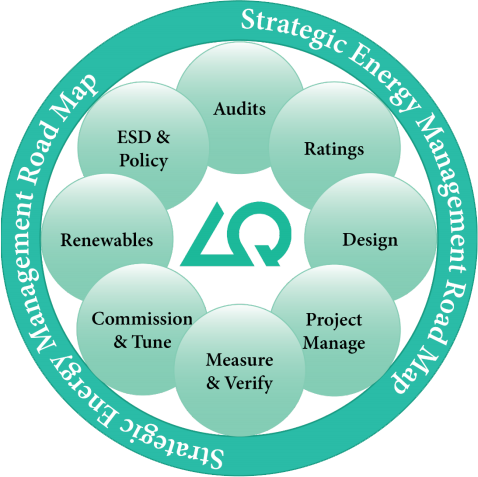NABERS Ratings
Depending on your facility type, NABERS ratings are a great way to benchmark your facility\’s existing performance. It is also a good way to validate your facility\’s improved performance after energy efficiency upgrades have been undertaken.
DeltaQ has some of the most experienced NABERS Assessors, Supervisors and Trainers in Australia. One of our founders, namely Dr. Paul Bannister, was involved in NABERS since its inception – having written the original Australian Building Greenhouse Rating scheme which later became NABERS Energy for Offices. Our team has subsequently been involved in the technical development for all of the NABERS Energy and Water tools, including Office, Hotels, Data Centres, Shopping Centres, Apartments and Hospitals rating tools.
We have completed hundreds of ratings for clients ranging from single sites to multi-building portfolios, covering all types of NABERS energy and water ratings.
DeltaQ\’s Carbon Neutral Accredited Assessors can also certify your buildings to be carbon neutral via the NABERS scheme.
DeltaQ\’s accredited NABERS Assessors can conduct the following NABERS rating types:
- Energy and Water Ratings
- Data Centres
- Hotels
- Shopping Centres
- Office Base Building, Tenancy, Whole Building and Co-Assess
- Waste Ratings
- Indoor Environment Quality Ratings
- Office Base Building, Tenancy, Whole Building
- Carbon Neutral Certification
BEEC Assessments
Currently all office buildings seeking to sell or lease areas greater than 1,000m² need a valid Building Energy Efficiency Certificate (BEEC). A BEEC consists of a NABERS Energy rating and a Tenancy Lighting Assessment (TLA) every 5 years. DeltaQ\’s accredited CBD Assessors can complete and lodge TLA and BEEC applications.
Members of DeltaQ were involved in the recent review of the CBD mandatory disclosure program commissioned by the federal government. The review considered the program expansion to a lower office threshold as well as other sectors such as shopping centres and data centres.
Compliance Reporting
DeltaQ have the experience and systems to deliver compliance reporting services for industry schemes such as NGERS, GRESB, DJSI, GRI and broader organisational environmental reporting. Applying our understanding of energy, energy-markets, industry control systems and building operations, DeltaQ ensures reports are delivered accurately and on time.
Established systems and data driven processes support the most complex reporting requirements, DeltaQ’s processes have been put to the test through annual external audits and passed with flying colours.
Don\’t hesitate to contact us if you need any NABERS rating, CBD assessment or compliance reporting services.


